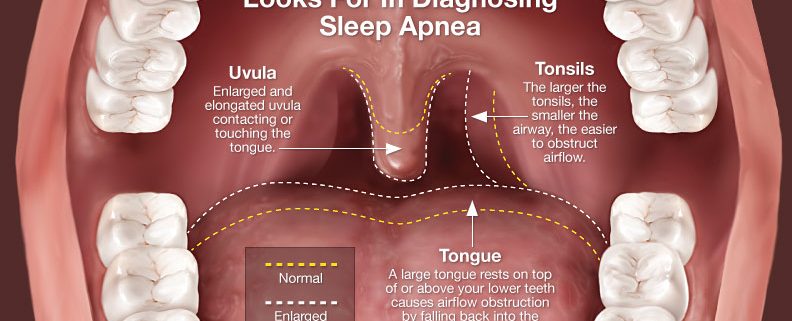The dangers of sleep apnea
Imagine being sound asleep and suddenly you stop breathing. So you startle awake. You start breathing again, and fall back asleep. And it happens over. And over. And over. Over the course of one night, a person may stop breathing hundreds of times! This is the painful reality for people who suffer from sleep apnea, and results in the brain and body not getting enough oxygen. The dangers of sleep apnea include:
High blood pressure
Sleep apnea causes your body to be very stressed, as it essentially goes into a panicked state every time it needs to restart your breathing. Your hormones go on overdrive, increasing your blood pressure. Couple that with the reduced oxygen level and you are a prime candidate for high blood pressure.
Heart disease
The stress of waking up often, alongside the low oxygen levels, make a person much more likely to have some form of heart trouble. It may be atrial fibrillation, strokes, or heart attacks. Since the brain is receiving less oxygen, it has a hard time maintaining all of the background functions that keep us alive – including controlling blood flow to the heart and brain.
Type 2 diabetes
Did you know that if you don’t get enough sleep, your body can’t use insulin correctly? This can ultimately result in type 2 diabetes, and of everyone with type 2 diabetes, at least 80% of them have sleep apnea.
Mental health issues
Not getting enough sleep has a drastic effect on your mental health. It can present as simply being cranky, or as serious depression or anxiety problems. There is good news though, treating the sleep apnea can greatly improve your mental well-being.
Weight gain
Extra weight not only makes you more susceptible to sleep apnea, if you have sleep apnea, it’s harder to lose weight! Luckily, treating sleep apnea will give you more energy – making it easier to lose those extra pounds.
Dentists are often the first medical professional to notice the signs of sleep apnea, since they typically interact with their patients on a more regular basis than a general practitioner. If you are experiencing any of these side effects:
- Lethargy
- Headaches
- Daytime sleepiness
- Snoring, choking, or gasping in your sleep
- Dry mouth
- Insomnia
- Irritability and impaired mental/emotional functioning
Then your dentist may send you to a sleep specialist to be evaluated. If this sounds familiar, call Dr. Chauvin’s office to set up an appointment, as there are other signs that a dentist can look out for in diagnosing sleep apnea.


